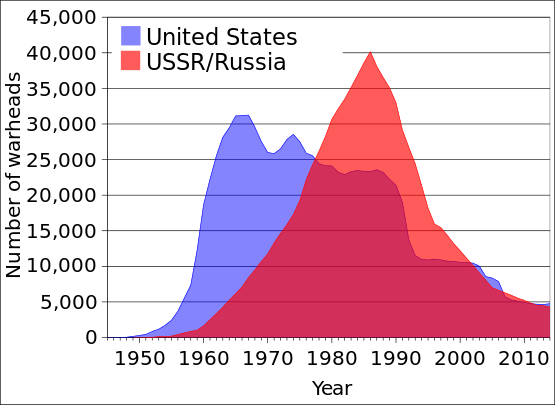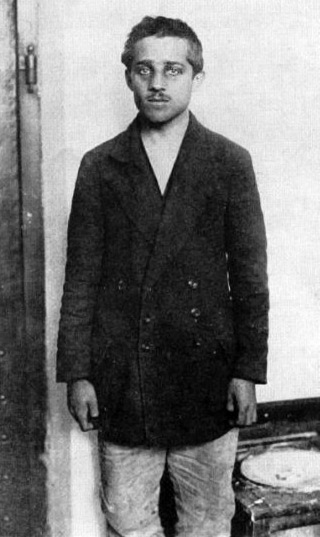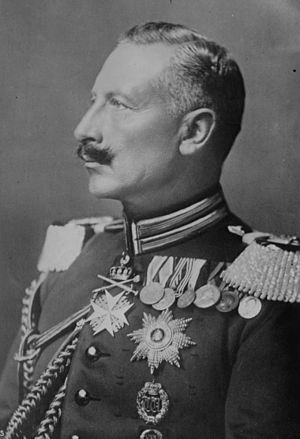In the fourth volume of the Hitchhiker’s Guide to the Galaxy “trilogy”, we learn that just before the Earth was about to be destroyed by the Vogons to make way for a new interstellar bypass, the whales left. They left behind a simple parting message: “So long and thanks for all the fish.”
Which makes me feel rather alarmed now that I am learning that hundreds of North Atlantic right whales went missing. I hope it’s not a bad sign.
I just finished reading an online-only novel, Armageddon, part of The Salvation Wars series, originally planned as a trilogy by author Stuart Slade.
The premise: God gave up on the Earth, and let it be known that from now on, it all belongs to Satan. However… Earthlings fight back. And pity the poor demon with his pitchfork when he is confronted with machine gun bullets, cluster bombs, incendiary bombs or Sarin gas, brought about by an impersonal modern military machine that is designed to destroy and annihilate its enemy… and then they haven’t even seen the worst of it yet.
And just as I was finishing the book, I came across this GIF meme: a machine, crucifying Christ at a rate of about one crucifixion per second. And suddenly, I started to feel really sorry for Hell’s demons.

OK, I may be the stupid atheist here, but I find this short clip more than creepy. It speaks volumes about the human race, about what we became and where we are heading, and none of it is nice.
I am reading the latest “alternate history” book by Harry Turtledove: Bombs Away, which describes a world in which President Truman accepts the advice of general MacArthur in 1951 and responds to the Chinese invasion of Korea by deploying nuclear weapons. With predictably disastrous consequences for the whole world.
On account of this book, I looked up historical figures of nuclear stockpiles on Wikipedia, and happened upon a chart that I decided to call the chart of hope.
It depicts the number of warheads owned by the two major nuclear powers. (Other countries are not listed; their combined stockpiles never reached 1,000 warheads, so their contributions are too small to appear on a plot like this.)
Although the more than 10,000 warheads that currently exist are still more than enough to destroy much of human civilization (and arguably, the reduction is due partly to more reliable, more accurate delivery systems), just a few decades ago, the number was in excess of 60,000. A ray of hope, perhaps, that sanity might just prevail. One thing is certain: Back in my high school years in the 1970s, very few people believed that we would live to see 2015 without experiencing the horrors of a thermonuclear war.
In Douglas Adams’s immortal Hitchiker’s Guide to the Galaxy, someone builds a device called the Total Perspective Vortex. This device invariably drives people insane by simply showing them exactly how insignificant they are with respect to this humongous universe.
The Total Perspective Vortex may not exist in reality, but here is the next best thing: A model of the solar system, drawn to scale.
The scale of this page is set so that the Moon occupies one screen pixel. As a result, we have an image that is almost a thousand times wider than my HD computer monitor. It takes a while to scroll through it.
Thankfully, there is an animation option that not only scrolls through the image automatically, but does so at the fastest speed possible, the speed of light.
Oh, did I mention that it still takes well over five hours to scroll all the way to Pluto?
By the way, the nearest star, our closest stellar neighbor is roughly 2,000 times as far from us as Pluto.
Or, once again in the words of Douglas Adams, “Space is big. Really big. You just won’t believe how vastly, hugely, mind-bogglingly big it is. I mean, you may think it’s a long way down the road to the chemist, but that’s just peanuts to space.”
Having grown up on the wrong side of the Iron Curtain, I had a thoroughly Marxist education in history during my grade school and high school years. A central tenet of Marxist history is the concept of “historical inevitability”: that great historic upheavals are a result not of individual heroism or foolishness, but of great socio-economic currents that create change.
I was reminded of this conflict between the “dialectical materialist” vs. the “romantic” view of history while I was reading a superb piece of historical science fiction, Ben Elton’s Time and Time Again. A story in which the protagonist time travels from 2024 to 1914 to change history, prevent The Great War, and make the world a better place. Things of course don’t exactly go as planned (or maybe they go according to plan a little too well?) but I cannot say much about the book without revealing the plot, so I won’t.
But the book, as well as one of the reviews I found on Amazon, made me think of how some of the most fundamental sequences of events in the 20th century were far from inevitable: rather, they were series of astoundingly improbable events, inept bungling that any half-competent publisher would reject as too incredible if submitted in the form of a manuscript of historical fiction.
First, the main event in Elton’s book: the Sarajevo assassination. Think of it: the Serbian organization, The Black Hand, positions not one, not two, but six separate assassins (some sources mention seven, but the seventh conspirator was the recruiter) along the arch duke’s planned route. Meanwhile, the arch duke arrives by train and immediately loses his security detail due to a mix-up as a result of which local police officers took their place in one of the cars.
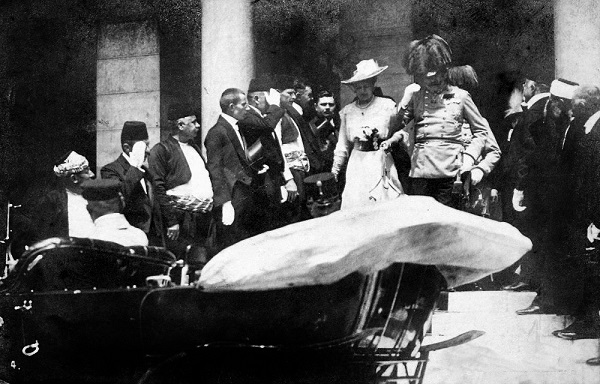
The sequence of events begins when the first assassin fails to act. The second, too, fails to act. The third finally does act and throws his bomb, which bounces off the arch duke’s car, only to explode underneath the next car, wounding more than a dozen people. This would-be assassin swallows an expired cyanide capsule and jumps into the river, which happened to be only five inches deep at the moment… so he fails to die. The remaining three assassins, too, fail to act as the rest of the motorcade passes by them at high speed.
So then the Austrian general in charge changes the route for the afternoon… and fails to inform the arch duke’s driver. Who then makes a wrong turn, comes to a stop and stalls the car right in front of one of the would-be assassins from earlier that day, Gavrilo Princip. Princip was there ostensibly because he hoped to complete his mission during the arch duke’s return journey, but for all we know, he gave up already and was just getting a sandwich at Schiller’s Deli when the target was so conveniently presented to him. And then he took out his gun and managed to kill both Franz Ferdinand and Sophie with a single bullet each. And thus the life of an arch duke who believed in increased federalism, in modernizing the Monarchy, came to an abrupt end, along with that of his beloved wife, despised and routinely humiliated by the court in Vienna for being outside of the arch duke’s rank. Franz Ferdinand’s last words were, reportedly, “Sopherl! Sopherl! Stirb nicht! Bleib’ am Leben für unsere Kinder!” (“Sophie! Sophie! Don’t die! Stay alive for our children!”)
And thus, world history changed and The War to End All Wars began a few short weeks later. Empires crumbled, murderous ideologies were born. A second world war and at least a hundred million deaths later, the world settled into the uneasy but surprisingly long-lasting peace of the Cold War, a peace that lasts to this day, bringing unprecedented prosperity to billions. Who knows what would have happened if Franz Ferdinand did not die on June 28, 1914?
The second bungled event that came to mind was the accidental fall of the Iron Curtain on November 9, 1989. (Astonishingly for me personally, just over three years after I left Hungary as a political refugee, having concluded that I saw no chance of “regime change” behind the Iron Curtain anytime soon, certainly not within a generation.)

The events that led directly to the collapse of the Berlin Wall began in Hungary a few months earlier, when my country of birth decided not to intervene as thousands of East German citizens crossed the border into Austria. Initially, the East German government responded by tightening its regime of exit visas, banning travel for its citizens first to Hungary and later, to Czechoslovakia. Nonetheless, unprecedented mass demonstrations followed in East Germany, with crowds rallying to the words “Wir wollen raus!” (“We want out!”) The East German government decided to take the bold step of allowing severely regulated private travel to the West.
The new regulations were to take effect the next day, but this was not communicated to Günter Schabowski, East Berlin’s party boss who was only handed a brief note announcing the changes moments before giving a press conference. Having made the announcement, in response to a question from a journalist, he stated that as far as he knew, the new regulations liberalizing travel are to take effect immediately, without delay, and involved border crossings along the Berlin Wall.

Almost immediately, crowds of East Germans began gathering at the Wall, demanding the opening of the gates. As no-one among East Germany’s leaders was prepared to order the use of lethal force, finally the commander of one of the border crossings yielded, and the border was thrown wide open.
Less than a year later, the state of East Germany ceased to exist.
What would have happened if Schabowski had been better informed? If the East German state had been able to assert its authority and managed to maintain order at its border crossings? Or conversely, what if they had the guts to give the order to fire? Would there have been a bloody revolution? Would Germany still be divided today? What would the European Union look like?
The date of November 9 is famous for another reason, by the way. It was on this day in 1918 that Imperial Germany ceased to exist with the abdication of Kaiser Wilhelm II, the ruler who probably bore the most responsibility for turning the 1914 Sarajevo crisis into an all encompassing World War.
Astonishingly, the last surviving member of the conspiracy to kill Franz Ferdinand, Vaso Čubrilović, lived to the ripe old age of 93 and passed away in the year of German reunification, in 1990.
Epic tales tend to be one sided. Hobbits: good, orcs: evil. Rebel Alliance: good, Galactic Empire: evil. And so on.
Except that sometimes, we do get a glimpse of the story from the perspective of the other side.
The conversations between orcs that we witnessed in later chapters of the Lord of the Rings kind of humanized them: they were not necessarily nice guys, but they were, well, foot soldiers in an army like foot soldiers in any other army. Russian novelist Kirill Neskov must have been thinking the same thing when he wrote The Last Ringbearer, a novel in which we learn that Mordor is a peaceful country undergoing an industrial revolution, which is threatened by backward, war-mongering imperialists led by Gandalf, who is seeking “a final solution to the Mordorian problem”. Wow.
As for Star Wars, I always wondered: When the Death Star was destroyed, for instance, how many innocent people: children, civilian employees, family members, cooks, nurses, doctors, and so on, were destroyed along with the artifact? More than that, what if the canonical account is really a one-sided, distorted version of the real story, and the Rebel Alliance is just a bunch of terrorists while the Galactic Empire is really a peaceful, progressive civilization representing law and order?
Apparently, I am not the only one with these thoughts. Here is an amazing short animation of a battle between the Empire and the rebels… from the Imperial perspective:
What can I say? Let’s hope the good guys win… whoever they are.
Science fiction has a subgenre: mathematical fiction. Stories of this nature are rare; good stories are even rarer. One memorable story that I recall from ages ago was A Subway Named Moebius, written by A. J. Deutsch in 1950. There was another story more recently: Luminous by Greg Egan, which I read in Asimov’s SF magazine shortly before I stopped reading (and eventually, stopped subscribing to) said magazine. (Nothing wrong with the magazine; it’s just that I found many of the stories unsatisfying, and I found I had less and less time to read them. The genre is just not the same as it was back in the Golden Age of Science Fiction.)
So recently, I found out that Egan wrote a sequel: Dark Integers, published in the same magazine in 2007. I now had a chance to read it and I was not disappointed.
Both stories are very good. Both stories are based on the notion that as yet unproven mathematical theorems can go either way; that the Platonic book of all math has not only not yet been written, but that there is no unique book, and multiple versions of mathematics may coexist, with an uneasy boundary.
Now imagine that you perform innocent mathematical experiments on your computer, using, say, computer algebra to probe ever more exotic theorems in a subfield few non-mathematicians ever heard about. And imagine how you would feel if you realized that by doing so, you are undermining the very foundations of another universe’s existence, literally threatening to wipe them out.
OK, if you start poking holes in that idea, there are many, but the basic notion is not completely stupid, and the questions that the stories raise are worth contemplating. And Egan writes well… the stories are fun, too!
Incidentally, this was the first decent (published) science fiction story I ever came across that contained a few lines of C++ code.
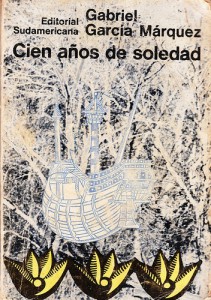 If I had to move to a deserted island with only a dozen or so books for the rest of my life, one of them almost certainly would be 100 Years of Solitude, by Nobel prize winning Colombian author Gabriel Garcia Marquez. I first read this book in the 1970s and it’s one of those books that I have re-read from cover to cover, once every decade or so, ever since. It is an absolutely remarkable, unique, wonderful story.
If I had to move to a deserted island with only a dozen or so books for the rest of my life, one of them almost certainly would be 100 Years of Solitude, by Nobel prize winning Colombian author Gabriel Garcia Marquez. I first read this book in the 1970s and it’s one of those books that I have re-read from cover to cover, once every decade or so, ever since. It is an absolutely remarkable, unique, wonderful story.
Alas, Gabriel Garcia Marquez is no longer with us. Less than an hour ago, a breaking news e-mail from CNN informed me that he passed away after having been hospitalized for a lung and urinary tract infection. He was 87.
I admit the news brought a tear to my eye.
May he rest in peace, perhaps joining the Buendia family in Macondo. Adios, Gabo.
 I just stumbled across some new research by climatologist Dan Lunt, who applied modern climate models to the geography and topography of Middle Earth. Yes, Tolkien’s Middle Earth, where hobbits, elves, dwarves, dragons, ents, orcs and other creatures live.
I just stumbled across some new research by climatologist Dan Lunt, who applied modern climate models to the geography and topography of Middle Earth. Yes, Tolkien’s Middle Earth, where hobbits, elves, dwarves, dragons, ents, orcs and other creatures live.
Prepared for possible interest by non-human readers, Lunt (writing under the pseudonym Radagast the Brown… or may be he *is* Radagast the Brown?) helpfully provided translations of his paper into Elvish and Dwarvish.
I couldn’t help but notice, though, that the list of references is missing from the translations.
Also, I wonder… does Google Translate know Elvish and Dwarvish?
 Imagine a country in which small children are given coloring books figuring a leading politician.
Imagine a country in which small children are given coloring books figuring a leading politician.
Coloring books that describe the politician in “non-partisan and fact-driven” terms. A lengthy speech becomes a “magnificent feat”, during which the dear leader spoke with “clairvoyant precision”. The goals of political opponents are “worse than any war”.
This coloring book is “approved by teachers and educators”. It is “designed to be a fun, educational tool”. Parents are encouraged to “Tell the truth – Tell it often – Tell the children”.
If you thought I was describing a North Korean coloring book featuring the “Great Successor” King Jong-un or his daddy or granddaddy, think again.
That is because the abomination that I just described was in fact published in the great United States of America. Its title: “Ted Cruz to the Future™ – Comic Coloring Activity Book“, published by Really Big Coloring Books®, Inc.
And it is available at Amazon for the bargain price of $5.69. Or it was, anyway; presently, it is shown as “Temporarily out of stock.”
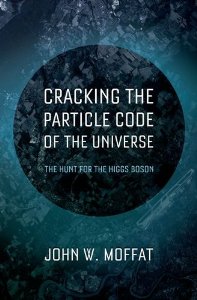 I have been collaborating with John Moffat on his modified gravity theory and other topics since 2007. It has been an immensely rewarding experience.
I have been collaborating with John Moffat on his modified gravity theory and other topics since 2007. It has been an immensely rewarding experience.
John is a theoretical physicist who has been active for sixty years. During his amazingly long career, John met just about every one of the iconic figures of 20th century physics. He visited Erwin Schrödinger in a house where Schrödinger lived with his wife and his mistress. He was mentored by Niels Bohr. He studied under Fred Hoyle (the astronomer who coined the term “Big Bang”). He worked under Paul Dirac. He shared office space with Peter Higgs. He took Wolfgang Pauli out for a wet lunch on university funds. He met Feynman, Oppenheimer, and many others. The one iconic physicist Moffat did not meet in person was Albert Einstein; however, Einstein still played a pivotal role in his career, answering letters written to him by a young John Moffat (then earning money as a struggling artist) encouraging him to continue his studies of physics.
Though retired, John remains active as a member of the prestigious Perimeter Institute in Waterloo. I don’t expect him to run out of maverick ideas anytime soon. Rare among physicists his age, John’s knowledge of the science is completely up-to-date, as is his knowledge of the tools of the trade. I’ve seen physicists 20 years his junior struggling with hand-written transparencies (remember those, and the unwieldy projectors?) even as John was putting the finishing touches to his latest PowerPoint presentation on his brand new laptop or making corrections to a LaTeX manuscript.
More recently, John began to write for a broader audience. He already published two excellent books. His first, Reinventing Gravity, describes John’s struggle to create a viable alternative to Einstein’s General Theory of Relativity, a new gravity theory that would explain mysteries such as the rotation of galaxies without resorting to the dark matter hypothesis. John’s second book, Einstein Wrote Back, is a personal memoir, detailing his amazing life as a physicist.
John’s third book, which is about to be published, is perhaps his most ambitious book project yet. Cracking the Particle Code, published by the prestigious Oxford University Press, is about the decades of research in particle physics that resulted in the recent discovery of what is believed to be the elusive Higgs boson, and John’s attempts to explore theoretical alternatives that might make the Higgs boson hypothesis unnecessary, and provide alternative explanations for the particle observed by the Large Hadron Collider.
I had the good fortune of being able to read the manuscript earlier this year. My first reaction was that John took up an almost impossible task. As many notable physicists, including Einstein, observed, quantum physics is harder, perhaps much harder, than relativity theory. The modern Standard Model of particle physics combines the often arcane rules of quantum field theory with a venerable zoo of particles (12 fermions and their respective antiparticles, four vector bosons, eight gluons and, last but not least, the Higgs boson). Though the theory is immensely successful, it is unsatisfying in many ways, not the least because it fails to account for perhaps the most fundamental interaction of all: gravity. And its predictions, while exact, are very difficult to comprehend even for trained theorists. Reducing data on billions of collisions in a large accelerator to definitive statements about, say, the spin and parity of a newly observed particle is a daunting challenge.
Explaining all this in a form that is accessible to the interested but non-professional reader is the task that John set out to tackle. His text mixes a personal narrative with scientific explanations of these difficult topics. To be sure, the technical part of the text is not an easy read. This is not John’s fault; the topic is very difficult to understand unless you are willing to invest the time and effort to study the mathematics. But John’s personal insights perhaps make the book enjoyable even to those who choose to skip over the more technical paragraphs.
There are two points in particular that I’d like to mention in praise. First, John’s book is amazingly up-to-date; as late as a few weeks ago, John was still making small corrections during the copy editing process to ensure that everything he says is consistent with the latest results from CERN. Second, John’s narrative always makes a clear distinction between standard physics (i.e., the “consensus”) and his own notions. While John is clearly passionate about his ideas, he never forgets the old adage attributed to the late US Senator, Daniel Patrick Moynihan: John knows that he is only entitled to his own opinions, he is not entitled to his own facts, and this is true even if the facts invalidate a theoretical proposal.
I hope John’s latest book sells well. I hope others will enjoy it as much as I did. I certainly recommend it wholeheartedly.
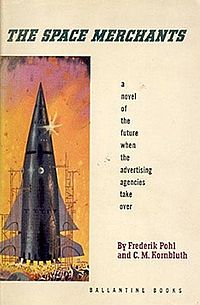 One of the giants of the golden era of science-fiction, indeed a co-author of one of the most influential science-fiction novels of all time, The Space Merchants, passed away yesterday, just a few weeks shy of his 94th birthday.
One of the giants of the golden era of science-fiction, indeed a co-author of one of the most influential science-fiction novels of all time, The Space Merchants, passed away yesterday, just a few weeks shy of his 94th birthday.
I think it would be a fitting tribute if a future space probe took his ashes to Venus and scattered it in the planet’s atmosphere.
Many years ago, I came across a strange miniseries on the Canadian science fiction cable channel Space. I could not make heads or tails of it, but its atmosphere was captivating. Later, when all four episodes were broadcast in a late night marathon, I taped them all (yes, taped them; it was that long ago). A few weeks later, I came across that same tape, began watching, and I was forever hooked.
This is how I first encountered Mervyn Peake’s remarkable trilogy, Gormenghast.
Needless to say, I soon bought the book and read it in no time from cover to cover. It was an amazing read. There are only a few books that I can think of in my (admittedly limited) reading experience that I found as profound as this one: for instance, Bulgakov’s Master and Margarita, or Marquez’s 100 Years Solitude.
The omnibus edition of the Gormenghast trilogy that I read contained more than just the three novels. It also contained a brief fragment from a fourth novel. A novel Peake never had a chance to write, due to his debilitating illness and eventual untimely death.
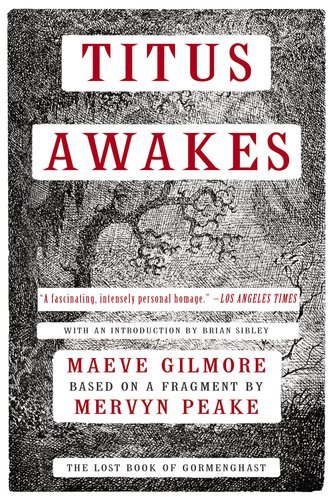 Nonetheless, the fourth novel, Titus Awakes, did end up being written. Not by Peake but by his wife and life partner, Maeve Gilmore. Shortly after Peake’s death, Gilmore attempted the impossible: she tried to finish the novel that her husband was not able to complete.
Nonetheless, the fourth novel, Titus Awakes, did end up being written. Not by Peake but by his wife and life partner, Maeve Gilmore. Shortly after Peake’s death, Gilmore attempted the impossible: she tried to finish the novel that her husband was not able to complete.
The remarkable thing is that she succeeded. In every respect, Titus Awakes is a true continuation of the Gormenghast cycle. It is a poignant novel that even incorporates a marginally autobiographical element, an attempt by Gilmore to turn back the clock to happier times and to tie the story of the protagonist, Titus Groan, to that of her own family.
This manuscript sat hiding in an attic for decades until it was recently found by Peake’s descendants. Gilmore herself passed away almost thirty years ago. What are the odds that a manuscript of such significance is found after all this time? Yet it is here, and for fans of Gormenghast, it is well worth reading.
I have read the Gormenghast trilogy twice already, and undoubtedly I will read it again. But the next time, I’ll not stop reading at the end of the third novel; I will also re-read Titus Awakes.
 I am so not into “franchise” novels, novels that are written-to-order, set in the universe of an established franchise like Star Trek. Like franchise computer games, franchise novels tend to be hollow, weak, transparent attempts to capitalize from the success of the original work.
I am so not into “franchise” novels, novels that are written-to-order, set in the universe of an established franchise like Star Trek. Like franchise computer games, franchise novels tend to be hollow, weak, transparent attempts to capitalize from the success of the original work.
I like Star Trek. Over the years, I did read the occasional Star Trek “franchise” story, but they did not leave much of an impression. So I was not particualrly motivated to read another.
That said, when I recently read about Provenance of Shadows by David R. George III, a franchise novel written to coincide with the 40th anniversary of the series, for reasons I can no longer recall I became sufficiently intrigued to read the sample chapters on Google Books. They were enough to get me to buy the book. I do not regret doing so.
Spoiler alert
This book tells the story of an alternate timeline. Namely, the alternate timeline created by the events in the famous Star Trek episode “The City at the Edge of Forever”, in which Dr. McCoy finds himself in 1930 and, as we later learn, by preventing the death of a social worker, gravely alters history. The social worker, Edith Keeler, is a devoted pacifist; in the alternate timeline, she launches a pacifist movement that becomes powerful enough to delay the entry of the United States into World War II. This gives Hitler a chance to achieve victory on the Eastern Front, Japan a chance to conquer much of the South Pacific including New Zealand and parts of Australia, and most alarmingly, gives the Nazi atomic bomb project a head start.
I find this “alternate history” timeline compellingly believable. We tend to think that the defeat of the Nazis was a historical inevitability but it was by no means preordained. Suppose the United States adopts a different posture in the Pacific in the late 1930s and early 1940s, so that Japan has easier access to raw materials and oil, and feels less threatened by the US Navy. Suppose this convinces Japan that defeating the US is not a priority. No Pearl Harbor in 1941 means no opportunity for Stalin to move a huge, well-equipped and experienced winter fighting force from Siberia to Moscow, and the first successful Soviet counteroffensive never happens. There is a good chance, then, that Hitler would have captured Moscow in early 1942 and after that, Stalin’s government may have collapsed. With the resources of the Soviet Union secured, Hitler would have finished “pacifying” Western Europe, including Great Britain. Had this happened, the world in which we live would be a very different place today.
McCoy’s struggles to avoid altering history and later, to understand how he altered history, and his struggles to come to term with his own demons both in this alternate history and also, back in the 23rd century in the original timeline, make this book a compelling read. I enjoyed it thoroughly.
There were many short science fiction stories I read in my misguided youth, like Van Vogt’s Dormant, that left a lasting impression.
Promise Them Anything, by Dean McLaughlin, is a delightful “first contact” story. Impeccably polite aliens arrive and tell the United Nations that they’d like us to vacate their property, for it was them who created the Earth and they are now here to mine it. The protagonists, who are diplomats, successfully explain to the aliens that humanity does not have the ability to remove itself from its planet of birth, as it lacks the know-how and the technology. The aliens, ever polite, respond by installing a supercomputer that contains all their collective knowledge, then they leave. Subsequently, not all the protagonists live long enough to meet the aliens again (some were too old already) but several of them are still alive a thousand years later when the aliens show up again… but they never come closer to the center of humanity’s growing interstellar empire than tau Ceti.
Another great story was Evensong by Lester Del Ray. It is about an individual being chased by a relentless opponent that wishes to imprison him. The chase takes them to a planet that the fugitive recognizes as the place where it all began. Ultimately, the Usurper corners him; there is no escape. “But why?” asks the fugitive, “I am God!” – “I know,” replies his pursuer. “But I am Man. Come!”
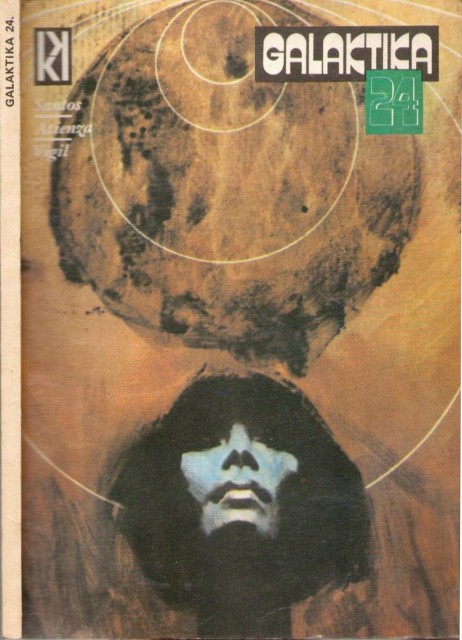 Finally, Hungary once had a world-class science fiction anthology, Galaktika. Volume 24 of this anthology was dedicated to Spanish science-fiction. In it, I read a story attributed to a “J. M. Lois”, titled Anticuerpos (Antibodies). (I can’t find anything about a writer by this name online.) It is about a time-traveling lifeboat of sorts on an otherwise barren planet that we soon recognize as future Earth. The protagonists were sent forward billions of years to find out why humanity was set to die out just after its greatest triumph: defeat of a cosmic danger that threatened the existence of the entire universe. Slowly we learn the answer: humanity was the universe’s response much as a biological organism produces antibodies to fight off disease. When the antibodies are no longer needed, they wither away. And indeed, the technological marvel of that temporal lifeboat lives on as a bright point of artificial light for a little longer… but the planet on which it is positioned is now truly lifeless.
Finally, Hungary once had a world-class science fiction anthology, Galaktika. Volume 24 of this anthology was dedicated to Spanish science-fiction. In it, I read a story attributed to a “J. M. Lois”, titled Anticuerpos (Antibodies). (I can’t find anything about a writer by this name online.) It is about a time-traveling lifeboat of sorts on an otherwise barren planet that we soon recognize as future Earth. The protagonists were sent forward billions of years to find out why humanity was set to die out just after its greatest triumph: defeat of a cosmic danger that threatened the existence of the entire universe. Slowly we learn the answer: humanity was the universe’s response much as a biological organism produces antibodies to fight off disease. When the antibodies are no longer needed, they wither away. And indeed, the technological marvel of that temporal lifeboat lives on as a bright point of artificial light for a little longer… but the planet on which it is positioned is now truly lifeless.
I don’t read science fiction stories that much anymore. I’d like to think that it’s not because I am older, but because the Golden Age of Science Fiction is no more, and great stories like these just don’t get written that much anymore.
 I spent a lot of my misguided youth reading science fiction. I particularly liked short stories.
I spent a lot of my misguided youth reading science fiction. I particularly liked short stories.
Dormant, written by A. E. Van Vogt, is set in the years immediately following the end of the Second World War and the first atomic explosions. The hero (if it can be called that) of the story is a giant slab of rock, which turns out to be a sentient machine that has lain dormant at the bottom of the sea for untold millions of years until it was woken by trace amounts of radioactive energy as a result of nuclear fallout in the ocean. When this 400-foot slab of rock climbs out of the sea and up a hill, it attracts the attention of the US military, which ultimately decides to destroy it with an atomic weapon. The sudden flood of energy was all Iilah (for the rock had a name) needed to wake up fully and remember its mission; after which, it destroys itself in a gigantic explosion, dislodging the Earth from its orbit and causing it to plunge into the Sun. For Iilah’s purpose was to destroy a solar system. And even if it had known that the war it was designed to fight ended eons ago, robot bombs are not designed to make up their own minds.
This story was written by Van Vogt in the 1940s but much to my delight, I just came across a sequel published on the Web in 2012. Written by a Bruce Munro and titled After Dormancy, it gives humanity, in the author’s own words, “a slightly happier ending…”
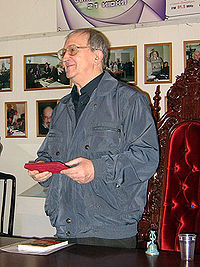 One of the best known Russian science-fiction authors from the Soviet era, Boris Strugatsky, died today at the age of 79. Together with his brother Arkady (who died in 1991), they wrote some astonishing, unique novels, including some of my favorites: Monday Begins on Saturday and It’s Hard to be a God. But they are perhaps best known for the short story Roadside Picnic, immortalized in film by Andrei Tarkovsky under the title Stalker.
One of the best known Russian science-fiction authors from the Soviet era, Boris Strugatsky, died today at the age of 79. Together with his brother Arkady (who died in 1991), they wrote some astonishing, unique novels, including some of my favorites: Monday Begins on Saturday and It’s Hard to be a God. But they are perhaps best known for the short story Roadside Picnic, immortalized in film by Andrei Tarkovsky under the title Stalker.
 The other day, creators of The Big Bang Theory (the television sitcom, not the cosmological theory) accomplished something astonishing.
The other day, creators of The Big Bang Theory (the television sitcom, not the cosmological theory) accomplished something astonishing.
They managed to replace in my mind the iconic number 42 (the answer to the Ultimate Question about Life, Universe and Everything, from The Hitchhiker’s Guide to the Galaxy by Douglas Adams) with the number 43.
I am still reeling from the shock.
Here is a scary story: after a university professor referred jokingly to two absentee students as “spooks”, he became the subject of allegations of racism despite being well-known for his previous work on civil rights and racial equality. It so happened that the two missing students were African American, a fact of which the professor was unaware.
This Kafkaesque nightmare was the inspiration of a novel, “The Human Stain”, by author Philip Roth. Yet the novel itself became part of a Kafkaesque story on Wikipedia recently. That is because the Wikipedia entry falsely stated that the novel’s inspiration was a New York writer. When Roth asked for the article to be corrected, he was told by a Wikipedia administrator that “I understand your point that the author is the greatest authority on their own work, but we require secondary sources.”
Wikipedia’s goals to have facts backed by sources and to not contain original research are laudable. But sometimes, they go a tad too far (to say the least), a situation I ran into myself when contributing minor edits to entries about certain television series. Original research is one thing, but when prima facie evidence that is available for all to check contradicts a “secondary source”, shouldn’t it be obvious that the secondary source is simply wrong?
The story does have a happy ending, though. Now that Roth published an open letter in The New Yorker, the letter itself qualifies as a “secondary source”, and the Wikipedia entry is now updated. But if anything, this resolution just adds to the Kafkaesque surrealism of the story.


